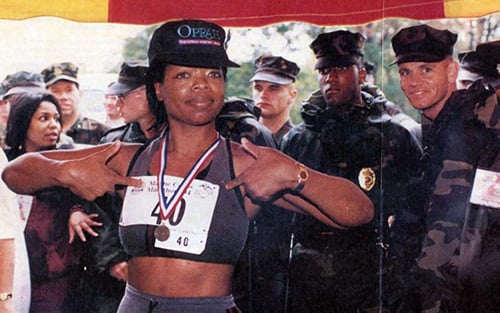Say the word “running,” and most people think of one number: 26.2. The marathon has grown into running’s most powerful symbol.
From Boston to Berlin, from Athens to New York, it carries an almost mythical weight: 26.2 miles that symbolize competitive spirit, toughness, discipline, and achievement. Ask a non-runner what they know about the sport, and chances are they’ll say “marathon.”
For some, the marathon is life-changing. For others, it’s grueling, costly, and perhaps unnecessary. So, the question remains: is running a marathon truly worth it—or has the distance been overhyped into running’s ultimate badge of honor?

The myth of the marathon
The story starts in ancient Greece, with the messenger Pheidippides collapsing after running from Marathon to Athens. Historians debate how much of that tale is fact, but it planted the seed: a heroic distance, synonymous with courage and sacrifice.
By the time the marathon became part of the first modern Olympics in 1896, the myth had grown larger than the race itself.
Over the next century, the marathon shifted from elite spectacle to mass participation. Cities around the world built their own events, transforming streets into stages where ordinary people could chase extraordinary goals.
Running a marathon became shorthand for proving you could push past limits. Now people don’t ask if you enjoy running—they ask if you’ve done 26.2.
Few cultural moments shaped the distance’s reputation more than Oprah Winfrey’s 1994 Marine Corps Marathon. She crossed the finish line in 4:29:20 and later said, “Running is the greatest metaphor for life, because you get out of it what you put into it.”
Millions of viewers watched her transformation from celebrity to finisher, and suddenly, the marathon felt accessible to everyone. If Oprah could do it, maybe anyone could.
Related: Stars on the Start Line: 20 Celebrities Who Crushed a Marathon

That democratization was both inspiring and limiting. On one hand, it opened doors: teachers, bus drivers, parents, retirees—all could now imagine themselves as marathoners. On the other hand, it cemented the marathon as the distance that defined you. Completing a 5K or even a half marathon rarely drew the same recognition. To the wider public, a “real runner” had to conquer 26.2.
Even today, when ultramarathons and trail races capture headlines, the marathon still holds its crown. It’s the distance most likely to earn you nods of respect in the office, the one you’ll see immortalized on car bumper stickers. For better or worse, it’s the yardstick against which running identities are measured.
But myths can be dangerous. They raise expectations sky-high and convince runners that suffering is mandatory, even virtuous. That’s where the costs begin to show.
The cost of chasing the myth
Physical toll
Marathon training asks for months of high mileage—often 40, 50, even 60 miles per week for recreational runners aiming to finish strong. That much pounding increases the risk of stress fractures, tendonitis, and chronic knee pain.
The race itself can suppress the immune system, leaving you vulnerable to illness in the days after. And recovery is not a matter of hours or even days; it can take weeks for the body to fully rebound.
Related:What Happens to Your Body During and After a Marathon?
Social toll
Long runs eat up weekends, and fatigue lingers well beyond the miles themselves.
Friends learn not to schedule Saturday brunch with you. Family life bends around training plans, and evenings that might have been spent relaxing turn into early nights because tomorrow’s long run looms.
Race day might last a few hours, but training reshapes your entire calendar for months.
Financial toll
Big city marathons often charge $150 to $300 just for an entry, and world marathon majors can climb even higher. Add in travel, hotel stays, specialized gear, and shoes that wear out quickly under marathon mileage, and the pursuit can feel like a luxury sport.
Racing flats with carbon plates might promise a few minutes saved, but at $250 a pair with limited durability, the price of performance isn’t cheap.
Related:How Much Does It Really Cost to Run a Marathon in the USA?
Emotional toll
Training for months builds pressure: to hit a certain time, to qualify for a race, to make the effort feel “worth it,” to sacrifice so much. And when the race doesn’t go as planned—when the weather turns brutal, when the stomach revolts, when cramps set in at mile 20 or you “hit the wall”—the disappointment can be crushing.
Even finishing isn’t always enough. Many runners wrestle with post-marathon blues, a hollow feeling once the medal is hung and the question “what’s next?” remains unanswered.
What you actually gain
Despite those costs, the rewards are undeniable.
Crossing the finish line of a marathon is unforgettable. The roar of the crowd, the weight of the medal, the rush of realizing you carried yourself farther than you thought possible—those memories stick with you for life. Few experiences match the emotional high of those final steps down the finishing straight.
The marathon also reshapes identity. The months of training, the discipline of building mileage—all forge mental resilience. Runners often talk about how marathon training made them more organized, more persistent, even calmer under stress outside of running. There’s truth to that: the distance demands a type of grit that transfers well into daily life.
And there’s the community aspect. Training groups bond over long runs; friendships are forged in shared fatigue and victory. The race itself places you in the middle of a moving city-wide festival, with strangers cheering as if they know you personally. That sense of belonging, of being part of something bigger, is a reward you can’t quantify.
Of course, many of these gains don’t require 26.2 miles. A well-run 10K or half marathon can deliver the same sense of accomplishment and community with less physical and emotional fallout. But for those who crave the full mythic experience, the marathon offers a payoff like no other.
When it’s worth it
The marathon is worth it under certain conditions. If these apply to you, the effort may be transformative:
- You dream of iconic finishes—running down Boylston Street in Boston or through Central Park in New York.
- You thrive on structure and enjoy building toward a long-term training goal.
- You crave the identity of “marathoner” and the story that comes with it.
- You want to raise money or awareness for a cause close to you.
- You’re willing to sacrifice significant time, often giving up weekends and social events for long runs.
- You can tolerate (or even enjoy) spending many hours on your feet, logging 40–60 miles a week during peak training.
- You have the patience to commit to a 16–20–week training plan.
- You’re okay with running sometimes feeling like a second job, because the goal makes the grind meaningful.
When it might not be worth it
For others, the marathon may not deliver enough to justify the cost. It might not be worth it if:
- Your main motivation is outside validation—proving to others that you’re a “real runner.”
- High mileage repeatedly leads you to injury and frustration.
- Training steals joy from your running and turns it into an obligation.
- The lifestyle sacrifices outweigh the benefits you’d gain.
Related: 10 Signs That a Marathon Isn’t for You
Alternatives to the marathon
The truth is, greatness doesn’t live only at 26.2. The half marathon is often called the sweet spot: long enough to require dedication, short enough to recover quickly and repeat.
Racing a 5K or 10K at full effort can be brutally hard yet deeply satisfying, demanding precision and speed that the marathon doesn’t.
And beyond the roads, trail races and ultras offer completely different challenges—technical terrain, night running, elevation—that test resilience in other ways.
At the end of the day, the marathon is just one distance. It doesn’t define you as a runner. While for some people, it’s a life-changing experience, for others, it’s a detour from the kind of running they truly love. Its worth depends less on the distance itself and more on what you hope to find at the finish line.









